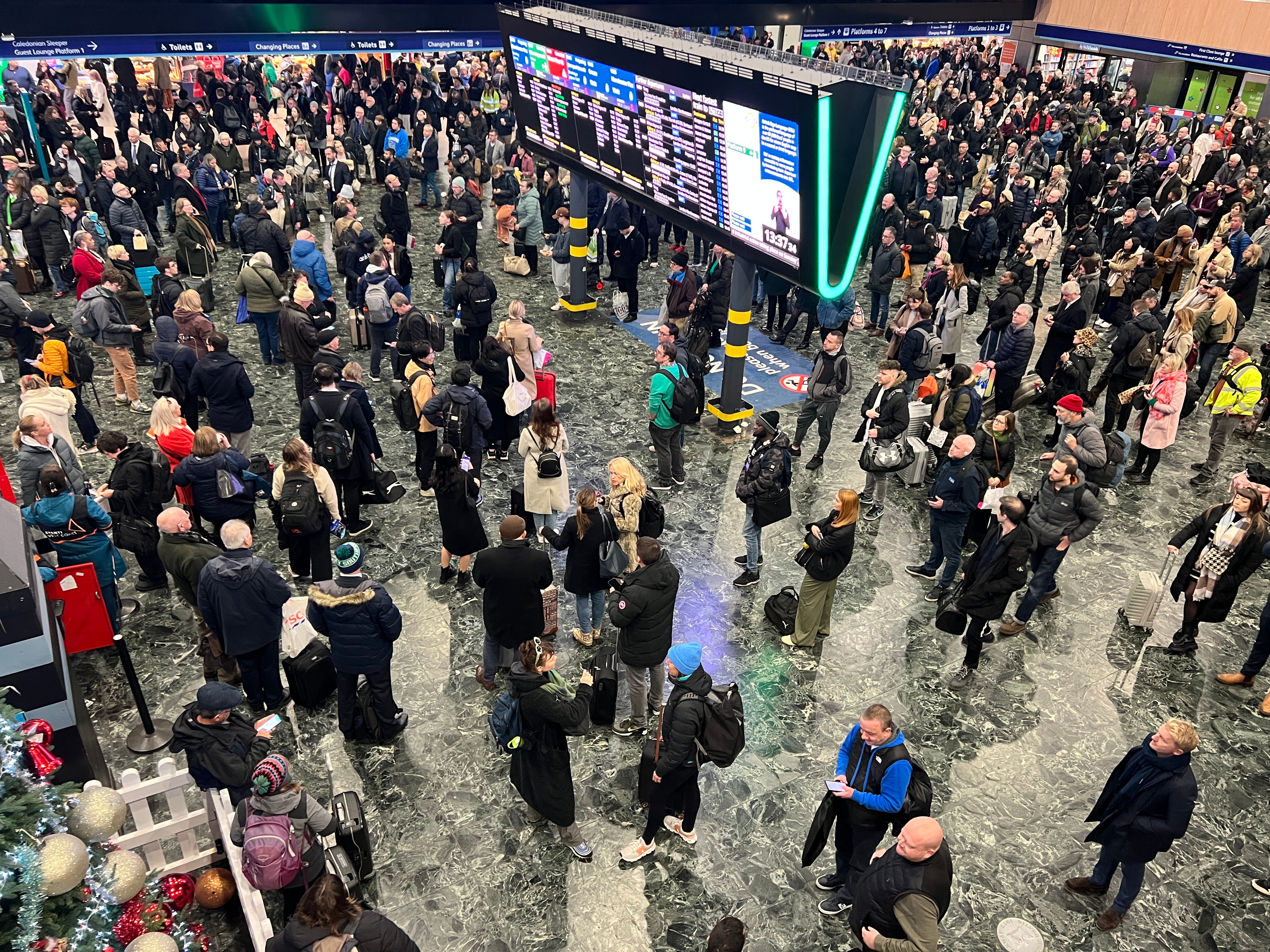Broken railway: ejecting private train operators is popular. But will it prove effective?
Train Talk: Nationalisation looks a sideshow considering the fundamental problems of the railway

Your support helps us to tell the story
From reproductive rights to climate change to Big Tech, The Independent is on the ground when the story is developing. Whether it's investigating the financials of Elon Musk's pro-Trump PAC or producing our latest documentary, 'The A Word', which shines a light on the American women fighting for reproductive rights, we know how important it is to parse out the facts from the messaging.
At such a critical moment in US history, we need reporters on the ground. Your donation allows us to keep sending journalists to speak to both sides of the story.
The Independent is trusted by Americans across the entire political spectrum. And unlike many other quality news outlets, we choose not to lock Americans out of our reporting and analysis with paywalls. We believe quality journalism should be available to everyone, paid for by those who can afford it.
Your support makes all the difference.“Britain’s railways are broken.” So says – or said – the transport secretary, Louise Haigh. Her social media assessment of the dire state of the rail industry, made six weeks ahead of the general election in July, remains true today.
“Cancellations have soared to record levels, fares have risen almost twice as fast as wages, and taxpayers are paying through the teeth to prop up a failing system.”
Ms Haigh spelled out what she intended to do about it: “Labour will deliver a publicly-owned railway that puts the passenger first.”
Rail nationalisation is an undoubted vote-winner. For anyone who can remember the 2019 election, it was one manifesto promise from Jeremy Corbyn that was popular with a majority of voters.
For all of us passengers who feel let down by the railways, bringing trains back under state control sounds tempting. Baroness Blake of Leeds, the Labour peer who is steering the Passenger Railway Services (Public Ownership) Bill through the House of Lords, says: “Public ownership will allow us to end the failed franchising system which has inflicted misery on passengers through delays, overcrowding and poor service.
“This bill will ensure that trains are run for the benefit of the British public, not for the profits of shareholders around the world.”
Her last point echoes the condemnation by the rail unions of the millions that are paid out in dividends to the private companies – some of them overseas train operators – who are currently under contract to the Department for Transport (DfT) to run most of the nation’s train services.
All other things being equal, saving several hundred million pounds that is currently paid to such firms will be a benefit. You could call it, to borrow a Brexiteer phrase, taking back control. But I am unconvinced that the nationalisation bill will do much to address the key issues for the railway: unreliable trains and a ridiculously complex and irrational system of fares.
I hope nationalisation will solve the railway’s deep-rooted problems. But the evidence is unconvincing.
On reliability: Exhibit A is Northern Rail. For the umpteenth Sunday in a row, last weekend the train operator issued an upper case message urging passengers in northwest England “NOT TO TRAVEL” on several key routes to and from Greater Manchester. The reason: “Train crew unavailability.”
On the west side of the Pennines (but not the east), Sunday is not part of the working week for Northern Rail train guards. Under the current agreement, they have no obligation to work on the Sabbath.
Tsk tsk, you might be thinking. Another example of those rubbishy private firms – except that Northern has been back in public ownership for five years. Responsibility for the shockingly bad service that passengers in northwest England receive rests solely with the DfT.
Successive governments have failed to have the necessary face-off with the rail unions to demand alignment with the needs of the 21st-century passenger without adding unduly to the taxpayer’s ever-growing burden.
Labour’s swift post-election settlement with the train drivers’ union, Aslef, included no conditions about working reforms – something the union says it wants, but for which it expects more cash.
A reasonable way for the railway to raise revenue is by offering simple, fair-priced tickets that tempt travellers out of their cars.
But train fares are bonkers, and leave almost everyone feeling they’ve been ripped off (apart from those of us who exploit perfectly legal tricks such as the “Didcot Dodge” to save 40 per cent on the fare between Bristol and London.
Ms Haigh could be the first transport secretary to actually carry out the promise of untangling complexity and making a trip by rail an affordable pleasure rather than an exercise in befuddlement.
Doubtless, the Treasury will insist that fares reform is “revenue neutral” – with tickets generating the same amount as cash as now. The government therefore needs to be upfront about telling passengers: while many fares would come down or stay the same, others would increase – possibly sharply.
More fundamentally, there are huge issues about the future of mobility for the government to tackle. For example: could autonomous vehicles moving en masse up and down motorways be part of a solution for Britain’s overstretched transport infrastructure?
I hope rail nationalisation yields some benefits for travellers. But public ownership of train operators remains only a small part of a much larger, and quite scary, picture.
Join our commenting forum
Join thought-provoking conversations, follow other Independent readers and see their replies
Comments